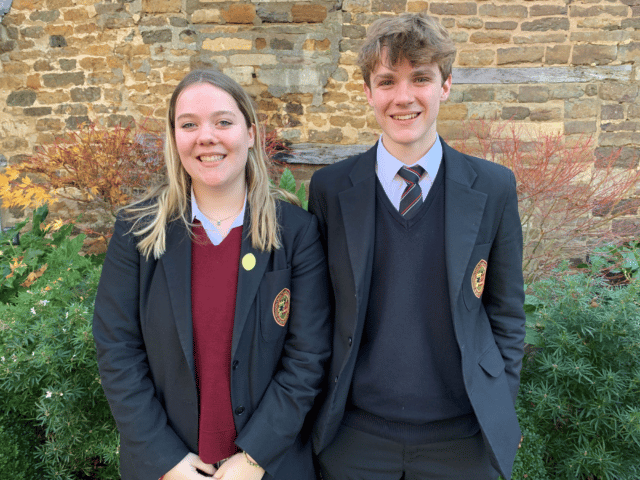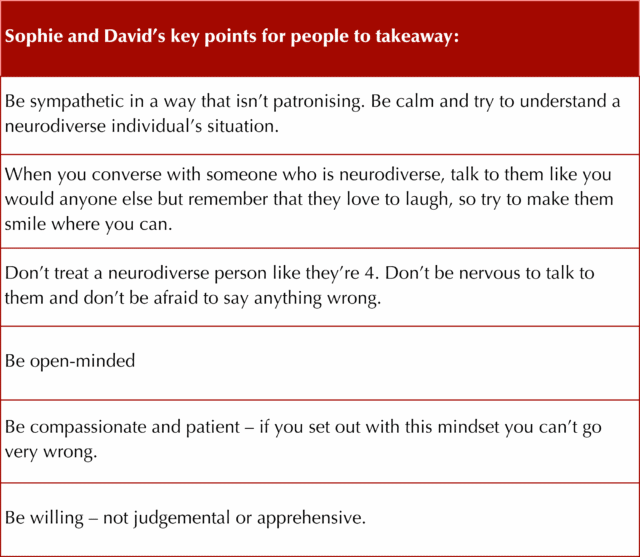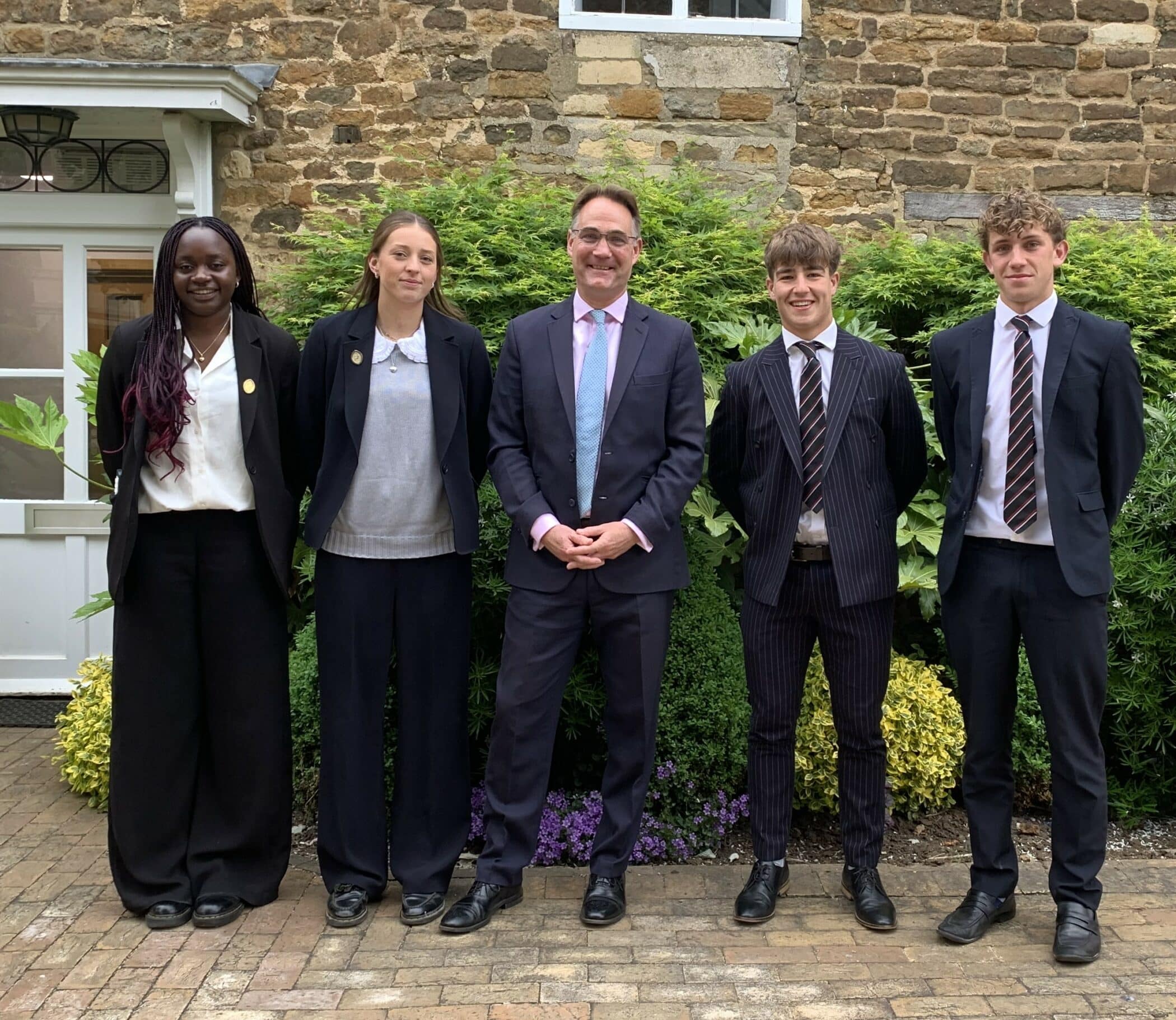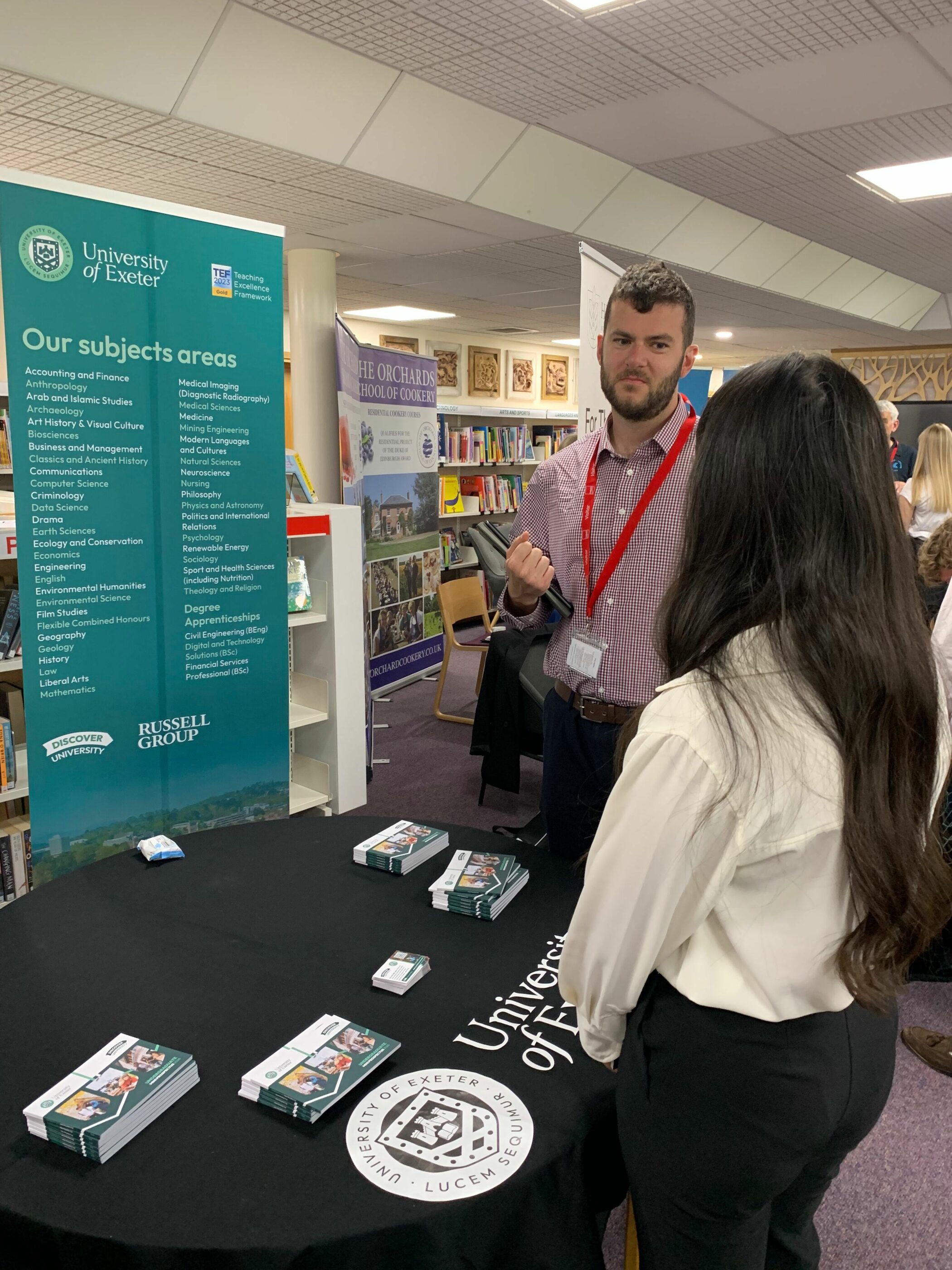Two pupils at Oakham School have been sharing their stories of how ableism has affected their lives to help educate their peers on neurodiversity and inclusivity.

As a topic that isn’t currently widely covered in the curriculum, Sophie and David, both Form 6 (Year 11), were given the opportunity to lead a recent Upper School Assembly with their talk: Neurodiversity and Ableism – Our stories, and why they’re important.
Here, they addressed the apprehension people can have when talking to someone who is neurodiverse and educated their peers and staff members on how they can help to spread kindness and awareness.
The duo said: “When doing this presentation, we set out to educate everyone on words they should avoid and how they shouldn’t talk in ways which reflect neurodiversity negatively.”
“It can be hard when we hear words that reflect the differences of a neurodiverse person negatively and isolate them, and the most saddening part of this is people’s lack of awareness in the language they use, and this means that we feel the burden of the hurtful things they say.”
The presentation
After receiving a House tutorial on Diversity and Inclusion, Sophie noticed a gap in the session in the form of neurodiversity and ableism.
She said: “I spoke to my Tutor and our Assistant Head of Upper School to say that I’d really like ableism to also be covered in our school and to talk to my peers about why it isn’t OK to use particular language. The aim was to give pupils more of an understanding of why they should be thoughtful and aware to people with disabilities.”
Sophie, whose brother has Down’s Syndrome, was then invited to present in an Upper School Assembly and enlisted the help of her friend, David, who has a brother with Autism and Hydrocephalus.
David said: “We were incredibly nervous about giving the talk to our peers, but it was also very exciting to help raise this awareness. It’s such a personal issue for both Sophie and myself, and I don’t think we’d ever made ourselves that vulnerable before, so this only added to the value and realism of what we were doing.”
Personal experience
David said: “Growing up with an older brother who has Autism and Hydrocephalus has meant that I have had to grow up incredibly fast in order to help him as much as possible. I have had to realise that my duty is to look out for him and help him remain able to thrive because I am not neuro diverse.”
“We told pupils that as children we sometimes wondered what it would be like to have a sibling relationship not too dissimilar from those of them with typical siblings. But we are not ashamed of our brothers, our relationship is different, and that doesn’t mean it is any worse than any other typical relationship, it is special, and they are our brothers and that is important to us.”
During their presentation, the duo aimed to create an incredibly vulnerable moment where they talked about how ableism has affected their families and how this issue is personal to them. This was met with a shocked reaction from their audience, some of whom might not have considered the impact their words can have on the family of a neurodiverse person.
Sophie said: “You do hear words which are quite hurtful, and I think people use them without thinking about the impact they can have because they think it’s funny and that they’re joking around.”
“I hope that the talk inspires people to think a bit more before they say something that might be upsetting to someone else.”
Growing up with a neurodiverse sibling
Sophie: “To me, Jack is so normal and I feel like it would take a couple of conversations to realise that he has a disability so I would love people just to be open minded and have a normal conversation with him.”
“If you do make a mistake when talking to someone like Jack, he honestly wouldn’t mind and speaking as a family member, we would just be so happy and grateful to you for trying and for making an effort.”
During the presentation, the duo talked about the fact that despite James and Jack being their older brothers, they have always felt the need to protect them from any forms of unkindness and struggle. This is because they are both vulnerable to sarcasm or any other forms of deceptive behaviour as a result of their neurodiversity; so, from a very young age, they understood that they were different and special.
The fear of the unknown
When reviewing what might make people apprehensive when talking to a neurodiverse person, Sophie and David cited the fear of the unknown as the biggest factor.
Sophie said: “People can be apprehensive about talking to a neurodiverse person because they might have a fear of saying something wrong, so this may then stop them from trying in the first place.”
“I would like people to know that even if they do say something wrong, as long as they don’t have bad intentions, then it doesn’t matter. People will appreciate the effort and know that it’s coming from a good place.”
Sophie and David plan to present their talk on neurodiversity and ableism to staff members and Middle and Lower School pupils in the near future.
Sophie added: “We’re so grateful to the school for giving us this opportunity. Ableism and diversity haven’t been treated like a tick box exercise at Oakham School, and we really feel like we were listened to when we raised the topic as being missing.”






